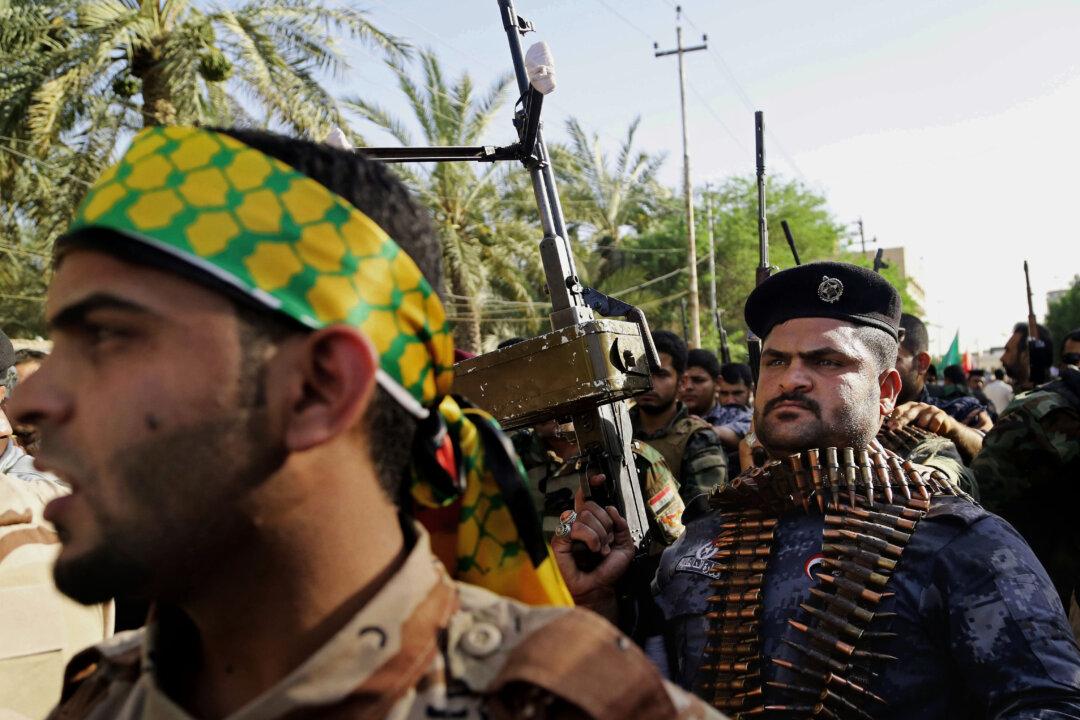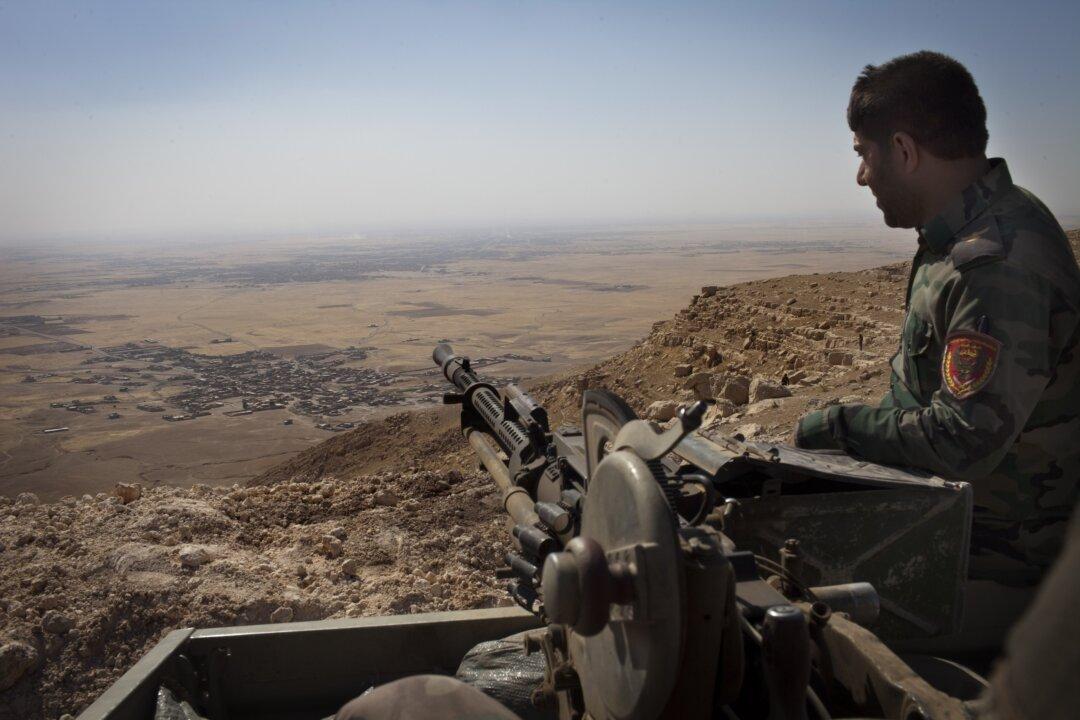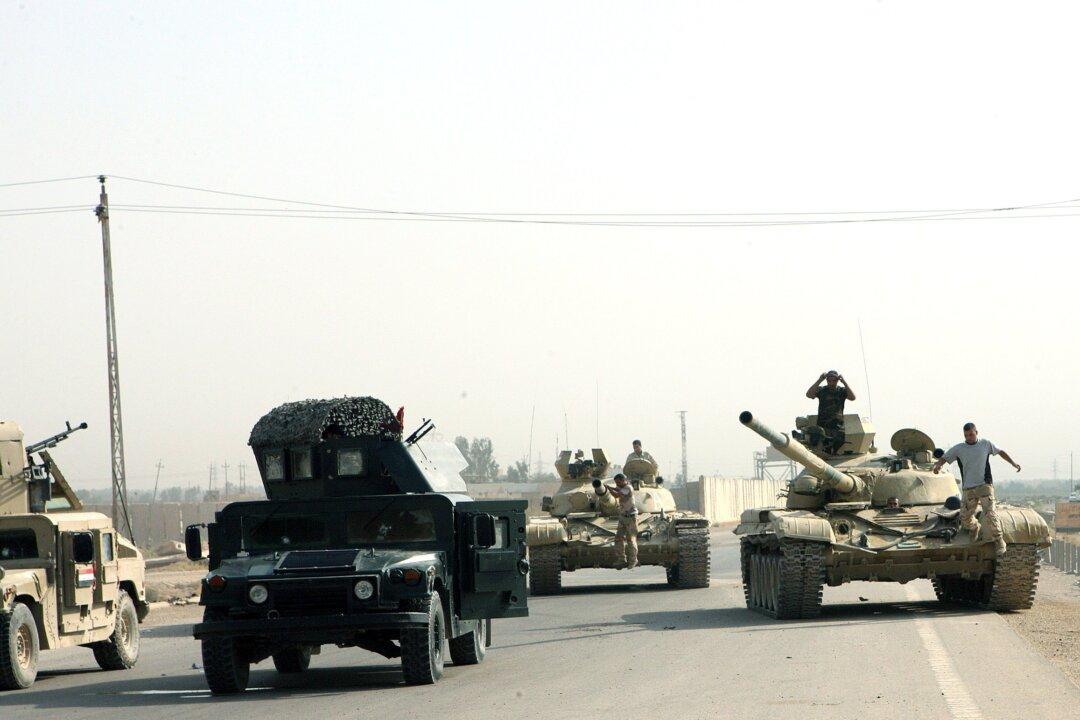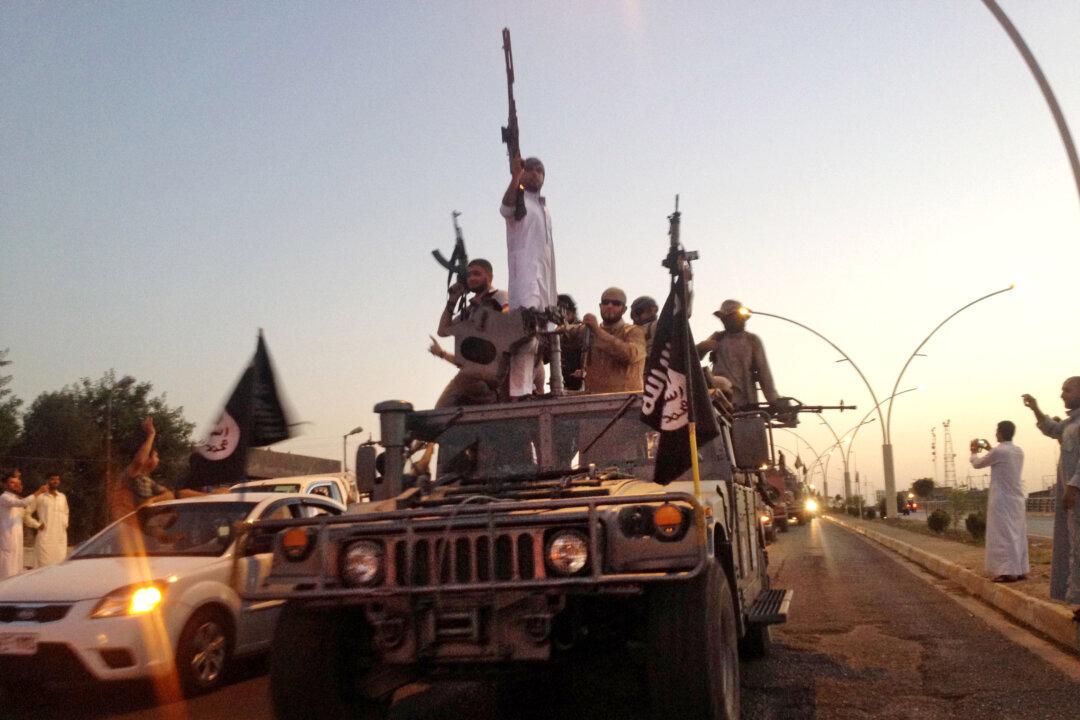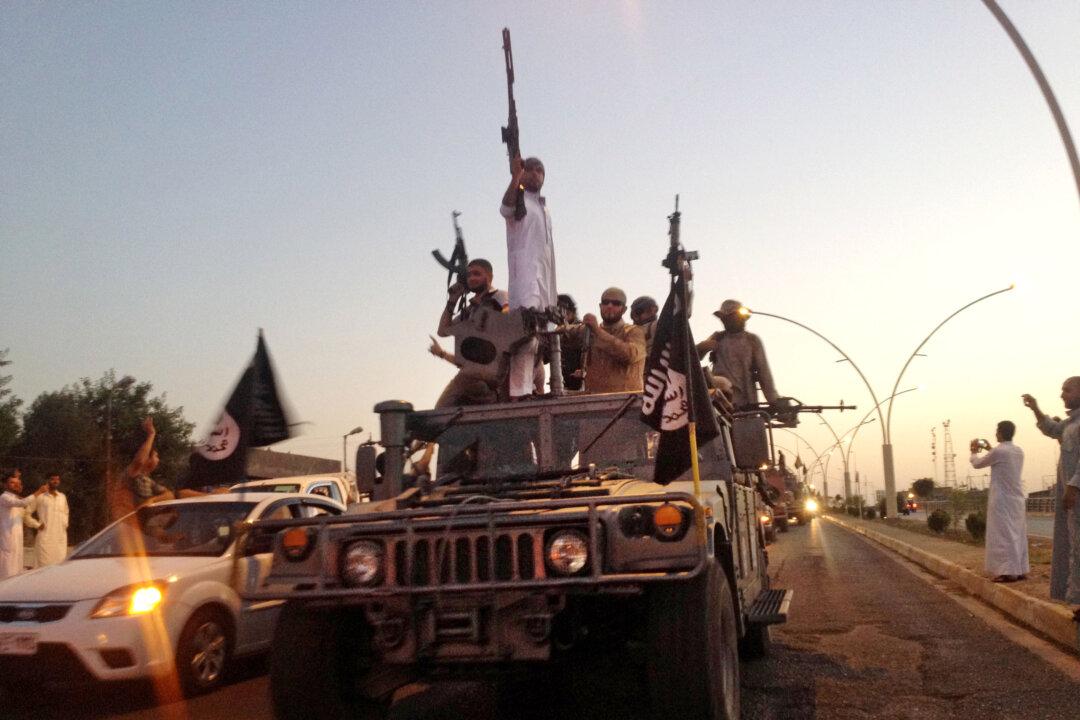BAGHDAD—Abu Murtada al-Moussawi answered the call last summer from Iraq’s top Shiite cleric to help save the country from the Islamic State group, but after less than three months on the front lines he and several friends returned home because they had run out of food.
“Sometimes, we didn’t have enough money to buy mobile scratch cards to call our families,” al-Moussawi, a Shiite from the southern city of Basra, said. “Everybody felt like we were being forgotten by the government.”
Now Iraq’s Shiite religious establishment is urging the faithful to donate food, money and supplies. The clerics hope to prevent a repeat of last summer’s collapse of Iraq’s demoralized army in the face of the Islamic State group’s lightning advance, which saw the extremists capture the country’s second largest city Mosul and sweep south toward the capital.
Shortly after the June blitz across northern Iraq, tens of thousands of Shiite men answered a nationwide call-to-arms by the top Shiite cleric, Grand Ayatollah Ali al-Sistani. Many volunteers came from the country’s most impoverished areas and were barely able to make ends meet even before taking up arms.
The Shiite fighters are credited with helping to stall the militants’ advance outside Baghdad, breaking the siege of the northern Shiite-majority town of Amirli in August, and later driving the militants out of Jurf al-Sakher south of the capital.
Al-Moussawi was deployed along with fellow militiamen in Latifiyah, a town 30 kilometers (20 miles) south of Baghdad, with orders to keep the Islamic State group out of Sunni areas along the so-called Baghdad Belt. But over the past two months, the number of men in al-Moussawi’s unit has dwindled, with as many as 1,000 deserting over economic hardship, he said.
In the upscale Baghdad neighborhood of Harthiya, a representative from al-Sistani’s office recently urged his followers to donate food and money to the Shiite militias — warning that many fighters had already deserted.
He said that instead of spending money on cooking the traditional large meals to mark a recent holiday, Shiites should instead donate to front-line militiamen. Since then, donations of money, clothing and food have begun pouring into the local Shiite mosque and charity office.
Issam Abbas said he and other merchants in Basra have begun sending four truckloads of food and water to the front lines each month as their contribution to the war against the Islamic State group.
“I and other traders cannot leave our businesses, so we consider our monthly donations as a jihad against the terrorists,” he said.
In the Baghdad Shiite stronghold of Sadr City, desperately-needed ammunition is being purchased through donations by wealthy Shiites. The drive to send weapons to the Shiite fighters has pushed the price of a single bullet from 40 cents to about $2, while an AK-47 is now sold for $800 compared to just $350 a few months ago.
Hassan Saleh, owner of a cafe in Sadr City, took part in battles against the IS group north of Baghdad in September. But he and his fellow militiamen never received any financial support from the government and depended completely on donations and their own money to meet their daily needs, he said. In early October, he returned home to look after his family.
“The government’s negligence toward us has created bitterness among the volunteer fighters risking their lives in order to protect the country,” he said. “We did not receive any salary, while the government is continuing to pay the salaries of the soldiers and the policemen who abandoned their positions without fighting in June.”
From The Associated Press. AP writer Nabil al-Jurani from Basra contributed to this report.
